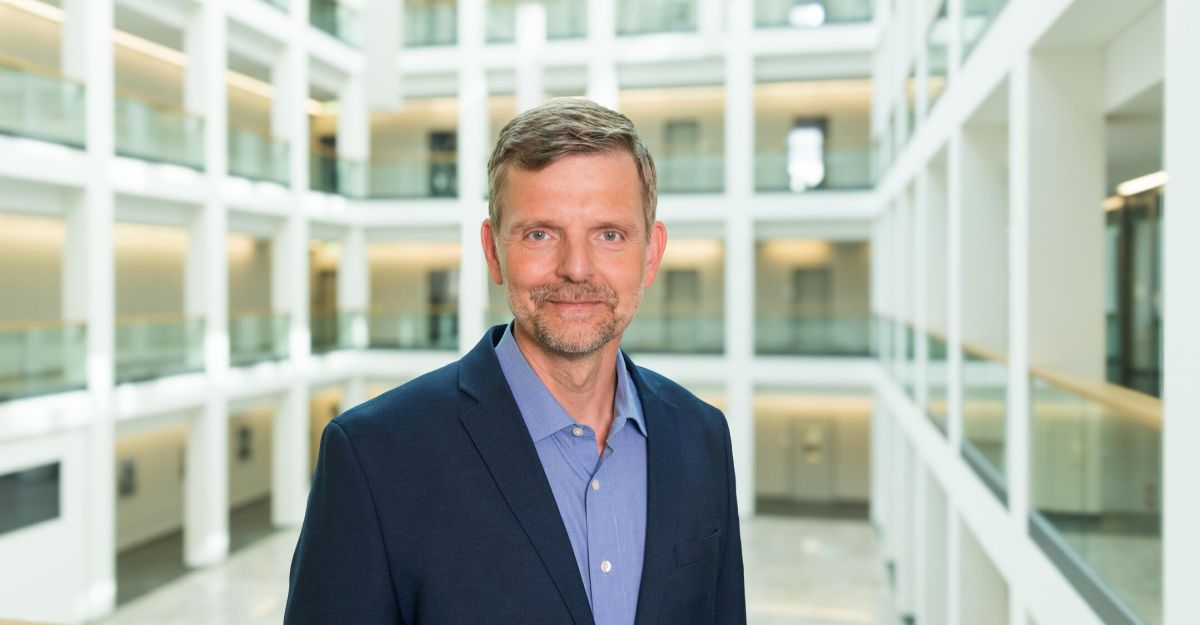
News
New in Berlin: tumor immunologist Johannes Huppa
02.09.2024 / Johannes Huppa has taken up the professorship for tumor immunology at Charité – Universitätsmedizin Berlin as of September 1. The T-cell receptor expert will also conduct research at the Max Delbrück Center in Berlin-Buch and the German Consortium for Translational Cancer Research (DKTK).

What is a part of the body’s “self,” and what is foreign to it? The T-cell receptor is the immune system’s central sensor and mechanism for making this distinction. Professor Johannes Huppa, who previously worked at various US institutions and most recently at the Medical University of Vienna before moving to Berlin, has been researching this molecule and its functions for over 25 years. He has significantly expanded our understanding of the molecular processes surrounding the receptor, particularly through his use of innovative microscopy techniques. Johannes Huppa is succeeding Professor Thomas Blankenstein, who led the Institute of Immunology at Charité until the end of 2020. His research group will be based at the Max Delbrück Center in Berlin-Buch, where he will have a translational guest group. His work will also be supported by the DKTK.
T-cell receptors sit like antennae atop T cells, which, as part of the acquired immune response, constantly patrol through blood, tissues, and organs like a clean-up crew. If the antennae perceive fragments presented to them by other cells as foreign, they trigger immune responses – and the invaders are eliminated. If the T-cell receptors instead recognize the presented fragments as belonging to the same body, they stay silent. “This process of distinguishing between ‘foreign’ and ‘self’ happens with astonishing precision and is also highly sensitive,” explains Johannes Huppa. “A patrolling cell can detect a single foreign fragment on the surface of an infected body with its T-cell receptors, even if the fragment is hidden among a thousand similar, but endogenous, fragments.”
Watching T cells at work
The importance of this recognition mechanism in maintaining the body’s overall health becomes clear in cases where doesn’t work perfectly or malfunctions. If the mechanism for distinguishing between friend and foe stops working, the body can mistakenly turn its immune system against itself, which may result in an autoimmune disease like multiple sclerosis or type 1 diabetes. Or the immune system might fail to recognize malignant tumor cells, which could develop into life-threatening disease. This can also lead to increased infections.
Johannes Huppa wants to find out exactly how a T-cell receptor binds to different fragments and what signals it transmits within the T cell to determine between foreign and self. For this, he has developed new microscopy techniques that allow him to observe living T cells at work. The technology makes individual receptor molecules on the cell surface, the presented fragments, and even the molecular bonds between them visible. This makes it possible to measure even the smallest mechanical forces in real time and to observe the activation processes within the T cell. In Berlin, Huppa will combine these techniques with synthetic biology methods and structural biology approaches to elucidate the molecular processes of fragment recognition in time and space with the highest resolution, i.e., in milliseconds and nanometers.
Treating cancer and autoimmune diseases
The immunologist aims to find ways of intervening in the function of the T-cell receptor. This has the potential to make cancer therapies in particular more effective. “If we understand exactly how a T-cell receptor achieves its immunological ‘masterpiece,’ we can better harness the potential of novel immunotherapies like CAR-T and TCR-T cell therapy,” explains the new institute director. He also wants to use this knowledge to advance the development of new vaccines against cancer and to eliminate harmful T cells in autoimmune diseases or rejection reactions following an organ transplant.
“For this, collaboration with clinical colleagues at Charité is essential,” emphasizes Johannes Huppa. “The immediate proximity to experts in structural biology and tumor immunology at the Max Delbrück Center and the excellent technological infrastructure at the Berlin-Buch campus will also be critical for achieving these goals. The Berlin location is known beyond Germany for its strength, versatility, and collegiality in both basic and clinical research. I am very excited to now be a part of this great network.”
Brief CV
Johannes Huppa (Born: May 12, 1967, in Thuine, Emsland District, Germany) studied biochemistry at the Free University of Berlin and researched T-cell receptors during his diploma thesis at the Massachusetts Institute of Technology (MIT) in the US. He continued these studies in his doctoral thesis at MIT and Harvard Medical School, and in 1998 he received his doctorate from the Vrije Universiteit Amsterdam. Initially a postdoctoral researcher, then a basic science research associate, he conducted research at the Stanford University School of Medicine in the San Francisco Bay Area before being appointed assistant professor at the Medical University of Vienna in 2012. From 2015, he headed the immune recognition research group at the Center for Pathophysiology, Infectiology and Immunology as an associate professor.
Text: Charité
Source: Joined Press Release Max delbrück Center & CharitéNew in Berlin: tumor immunologist Johannes Huppa